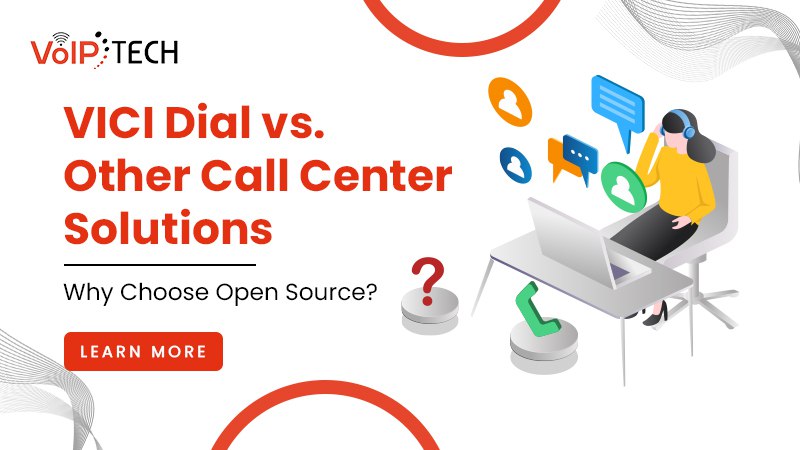The Role of VoIP in Transforming Call Center Communication

In today’s
fast-paced business environment, efficient and effective communication is
critical to the success of any organization. Nowhere is this more apparent than
in call centers, where customer interactions can make or break a company's
reputation. The advent of Voice over Internet Protocol (VoIP) technology has
revolutionized the way call centers operate, offering numerous advantages over
traditional telephony. In this blog, we’ll explore how VoIP is transforming
call center communication and why your business should consider making the
switch.
1. Cost Efficiency
One of the most
significant benefits of VoIP technology is its cost efficiency. Traditional
phone systems often involve high costs associated with long-distance calls,
infrastructure, and maintenance. VoIP, on the other hand, uses the internet to
transmit voice data, significantly reducing the costs of local and
international calls. Additionally, the scalability of VoIP systems allows call
centers to expand without the need for expensive hardware upgrades.
2. Enhanced Flexibility and Scalability
VoIP systems offer
unparalleled flexibility and scalability, which are crucial for call centers
that experience fluctuating call volumes. Adding or removing lines can be done
easily without the need for physical changes to the infrastructure. This
flexibility allows call centers to quickly adapt to changing business needs,
such as seasonal peaks or the launch of new campaigns.
3. Superior Call Quality
With advancements
in internet speed and VoIP technology, call quality has improved dramatically.
VoIP solutions provide high-definition voice quality, reducing issues such as
echo, static, and call drops. This ensures that call center agents can
communicate clearly and effectively with customers, leading to better customer
experiences and higher satisfaction rates.
4. Integration with CRM and Other Tools
VoIP systems can
easily integrate with Customer Relationship Management (CRM) software and other
business tools. This integration enables call center agents to access customer
information, call logs, and other relevant data in real-time. Such seamless
access to information enhances the efficiency and effectiveness of customer
interactions, enabling personalized service and quicker resolution of issues.
5. Advanced Features
VoIP technology
comes with a host of advanced features that are not available with traditional
phone systems. These features include:
Automatic Call Distribution (ACD): Efficiently routes calls to the most
appropriate agents based on predefined criteria.
Interactive Voice Response (IVR): Allows customers to interact with a
computerized system to route their calls or access information.
Call Recording: Records calls for quality assurance,
training, and compliance purposes.
Voicemail-to-Email: Sends voicemail messages directly to email,
allowing agents to access messages from anywhere.
These features
enhance the functionality and efficiency of call center operations, leading to
improved customer service.
6. Remote Work Capabilities
The COVID-19
pandemic has highlighted the importance of remote work capabilities. VoIP
technology supports remote work by enabling agents to take calls from anywhere
with an internet connection. This flexibility ensures business continuity and
allows call centers to tap into a global talent pool. Agents can work from home
or other remote locations without compromising on call quality or access to
necessary tools.
7. Data and Analytics
VoIP systems provide
robust data and analytics capabilities. Call centers can track a variety of
metrics, including call duration, wait times, call volume, and agent
performance. This data is invaluable for monitoring operations, identifying
areas for improvement, and making informed business decisions. Analytics can
also help in understanding customer behavior and preferences, leading to more
effective strategies and improved customer satisfaction.
8. Improved Security
Security is a major
concern for call centers, particularly those handling sensitive customer
information. VoIP systems offer advanced security features such as encryption,
secure protocols, and authentication mechanisms to protect data. Regular
updates and security patches ensure that the system remains secure against
evolving threats.
Conclusion
VoIP technology has
fundamentally transformed call center communication, offering a myriad of
benefits that enhance efficiency, flexibility, and customer satisfaction. From
cost savings and superior call quality to advanced features and robust
security, VoIP systems provide a comprehensive solution for modern call
centers. By adopting VoIP, call centers can stay competitive, adapt to changing
business environments, and deliver exceptional customer experiences.



